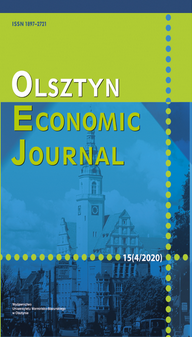METHODOLOGICAL ASPECTS OF THE TYPOLOGY OF REGIONS AND TERRITORIAL FORMATIONS
METHODOLOGICAL ASPECTS OF THE TYPOLOGY OF REGIONS AND TERRITORIAL FORMATIONS
Author(s): Michał Bilczak, Vera BorisovaSubject(s): Labor relations, Methodology and research technology, Economic development, Socio-Economic Research
Published by: Wydawnictwo Uniwersytetu Warmińsko-Mazurskiego w Olsztynie
Keywords: typology of regions; territorial units; NUTS;
Summary/Abstract: This paper presents the typology of regions in developed countries. It includes illustrated scientific concepts of describing development of regional territorial systems based on local cores used as the basis for the typology. The article identifies typologies, highlighting reasons behind the attractiveness of individual regions for capital and labour; as well as links among economic operators. Typology methods for European regions are discussed, including typologies associated with transport accessibility, economic specialisation and the functional structure of regions. In most typologies, the basic developmental factors and solutions to practical issues are taken into account. A special role is played by typologies that are associated with economic growth and those that take into consideration a GDP per capita increase; along with the population density factor. Attention is drawn to the use of research on the typology of regions with regards to developmental planning, modelling and strategizing.
Journal: Olsztyn Economic Journal
- Issue Year: 15/2020
- Issue No: 3
- Page Range: 229-238
- Page Count: 10
- Language: English

